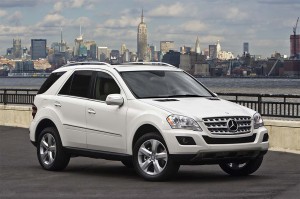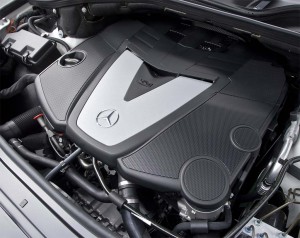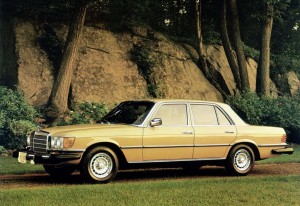Daimler AG is finding itself in the crosshairs and wondering whether it could be the next target in a crackdown on diesel emissions scams.
The automaker today issued an advisory that it could face penalties, which could mean fines and recalls, as regulators in the U.S. and abroad look to see if the German luxury maker violated rules covering its various diesel models. Authorities have been taking a close look at claims made by a number of manufacturers in the wake of revelations that Volkswagen used a so-called “defeat device” to illegally pass U.S. diesel emissions tests.
“In light of the ongoing governmental information requests, inquiries and investigations, and our own internal investigation, it cannot be ruled out that the authorities might reach the conclusion that Mercedes-Benz diesel vehicles have similar functionalities,” Daimler said in its newly released quarterly report.
The maker first acknowledged in January that authorities had begun probing its handling of diesel emissions. That was the same month that VW agreed to settle a criminal probe by the U.S. Justice Department, a federal judge this past week approving the payment of a $2.8 billion fine.
(For the latest on the VW diesel deal, Click Here.)
In the VW case, the mainstream German automaker rigged the software controlling two diesel engines to recognize when a vehicle was undergoing emissions tests and then adjust pollution levels. In real-world situations, the U.S. Environmental Protection Agency asserted, those powerplants would produce up to 40 times the legal limit for pollutants like smog-causing oxides of nitrogen.
Since the scandal broke in September 2015, regulators in the U.S. and the European Union have begun rechecking the emissions claims made by other manufacturers, including Daimler, General Motors, Fiat Chrysler Automobiles and others.
In January of this year, the EPA take aim at FCA, alleging that it may have used its own, rigged software on products like the Ram 1500 EcoDiesel which “appeared to cause the vehicles to perform differently when being tested” than when in use in real-world conditions.
That same month, Daimler said that what the EPA was concerned about “apparently includ(ed) functionalities that are common in diesel vehicles, as undisclosed Auxiliary Emission Control Devices (AECD).”
(Volkswagen spending $300M to start promoting electrified vehicles. For the details, Click Here.)
While the German parent of both the Mercedes-Benz and Smart brands did not confirm it had broken the law, it laid open the possibility that its own diesel emissions strategy could be in trouble.
“If these or other inquiries, investigations, legal actions and/or proceedings result in unfavorable findings, an unfavorable outcome or otherwise develop unfavorably, Daimler could be subject to significant monetary penalties, remediation requirements, vehicle recalls, process improvements and mitigation measures,” Daimler stated.
Whether the EPA and other government agencies in the U.S. and Europe will take action is far from certain and several automakers have been given a clean bill of health by European Union regulators.
While the majority of the vehicles Daimler sells in the U.S. rely on gasoline powertrains – and, with a number of models, gas-electric hybrid technology – diesels have become an increasingly popular part of its sales mix in recent years. Buyers have been drawn to promised benefits that include a combination of power, high mileage and reduced emissions.
At their peak, diesels accounted for more than 20% of VW’s U.S. sales. The automaker has decided to stop selling “oil burners” in the American market, though sibling brand Audi expects to offer diesel options on a small number of products going forward.
(Click Here to check out the latest, even more high-tech Mercedes-Benz S-Class update.)




I hope they aren’t actually going to tell automakers the emission settings to promote drivability (and protect the engine) during warm-up are “cheats”. I’ve been driving diesels since 1983 when I bought a ’71 220D (last saw it with 587,000 miles still doing great). Bought a Passat when MB didn’t have a good one which had ‘aged’ into my price range in 2014, hope someone will keep them on the market. It’s a powerplant much better suited for powering vehicles than a gasoline engine, though the gap is admittedly shrinking.